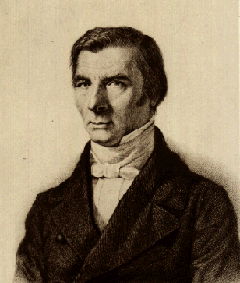If each man has the right to defend, even by force, his person, his liberty, and his property, several men have the right to get together, come to an understanding, and organize a collective force to provide regularly for this defense. Collective right, then, has its principle, its raison d’être, its legitimate basis, in individual right; and the collective force can rationally have no other end, no other function, than that of the individual forces for which it substitutes. Thus, as an individual cannot legitimately use force against the person, liberty, or property of another individual, for the same reason collective force cannot legitimately be applied to destroy the person, liberty, and property of individuals or classes.
– Frédéric Bastiat in The Law

In a modern France that idolizes José Bové, a French farmer who is best known for vandalizing a McDonald’s restaurant, as a national hero, it is easy to forget that there once lived in that same country, a liberal economist by the name of Claude Frédéric Bastiat. In America, he happens to be one of the most well-known of the French liberalists, yet is almost completely unheard of in his native France.
Bastiat is most famous for his 1845 “Candle-makers’ Petition”, a satirical plea on behalf of the candle-makers of France to the French Parliament to ban the sun, which he wittily describes as a competitor that brings ruin to the candle-makers since it offers illumination for free. Here, Bastiat effectively demonstrates that if the citizens of the country may obtain a good or a service cheaply, it would be ludicrous to turn down this offer even if it would mean some loss of business for the domestic producers of that same good or service. This is one of the best-argued denunciations of protectionism ever written and is justly reprinted in a number of economics textbooks.
